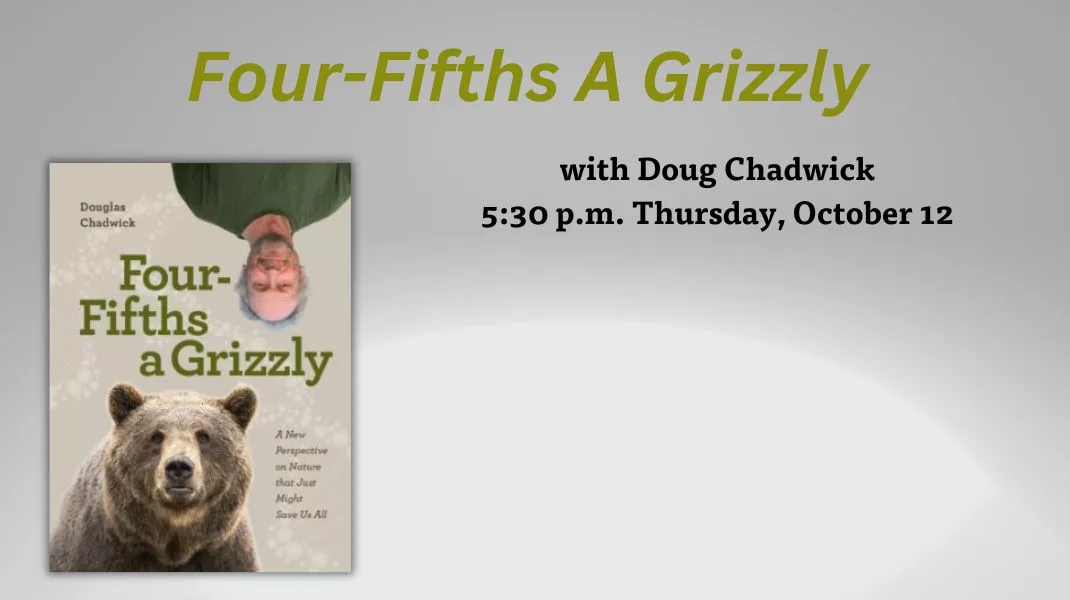with Doug Chadwick
Thursday, October 12, 2023
5:30pm – 6:30pm
ohn A. and Carole O. Moran Lecture Hall
Veteran environmental writer Douglas Chadwick will present ideas from his most recent book Four-Fifths A Grizzly: A New Perspective on Nature that Just Might Save Us All. He will explore the amazing interconnectedness of nature, advocating that the path toward conservation begins with how we see our place in the world. In the book Chadwick explores how our genetic identity and similarity with every other species challenges us to consider whether we are separate from or part of nature. Answering the question of how we can change this era’s trajectory, Chadwick presents examples of successful recoveries of species and habitats, with the thought that “we really can save a whole lot in a hurry.”
Doug will be introduced by Ryan Lutey from The Vital Ground Foundation, a land trust working to protect and connect wildlife habitat in the West. Vital Ground offers a model for large landscape connectivity and letting a single species – grizzly bears – guide us to conserving biodiversity.
Doug Chadwick is an American wildlife biologist, author, photographer and frequent National Geographic contributor. He is the author of fourteen books and more than 200 articles on wildlife and wild places. Chadwick is a past officer and current member of the board of The Vital Ground Foundation, and chairman of that organization’s Lands Committee, responsible for choosing acquisition properties as part of Vital Ground’s One Landscape wildlife corridor system. He is also a director of the Gobi Bear Fund, part of the Gobi Bear Initiative, which attempts to restore the world’s least known and most endangered population of grizzly bears. Since 2013 he has served on the advisory board of the Liz Claiborne Art Ortenberg Foundation, a New York-based non-profit that supports wildlife research and collaborative, community-based conservation projects around the world.
Chadwick graduated from the University of Washington, Seattle, with a B.S. in Zoology. He then earned an M.S. in Wildlife Biology from the University of Montana, Missoula. After graduating, he worked as a research wildlife biologist studying mountain goats and grizzly bears in northwestern Montana.

